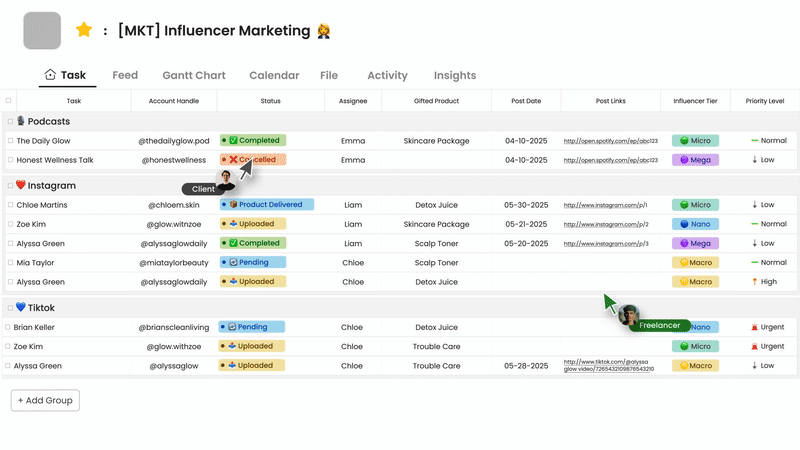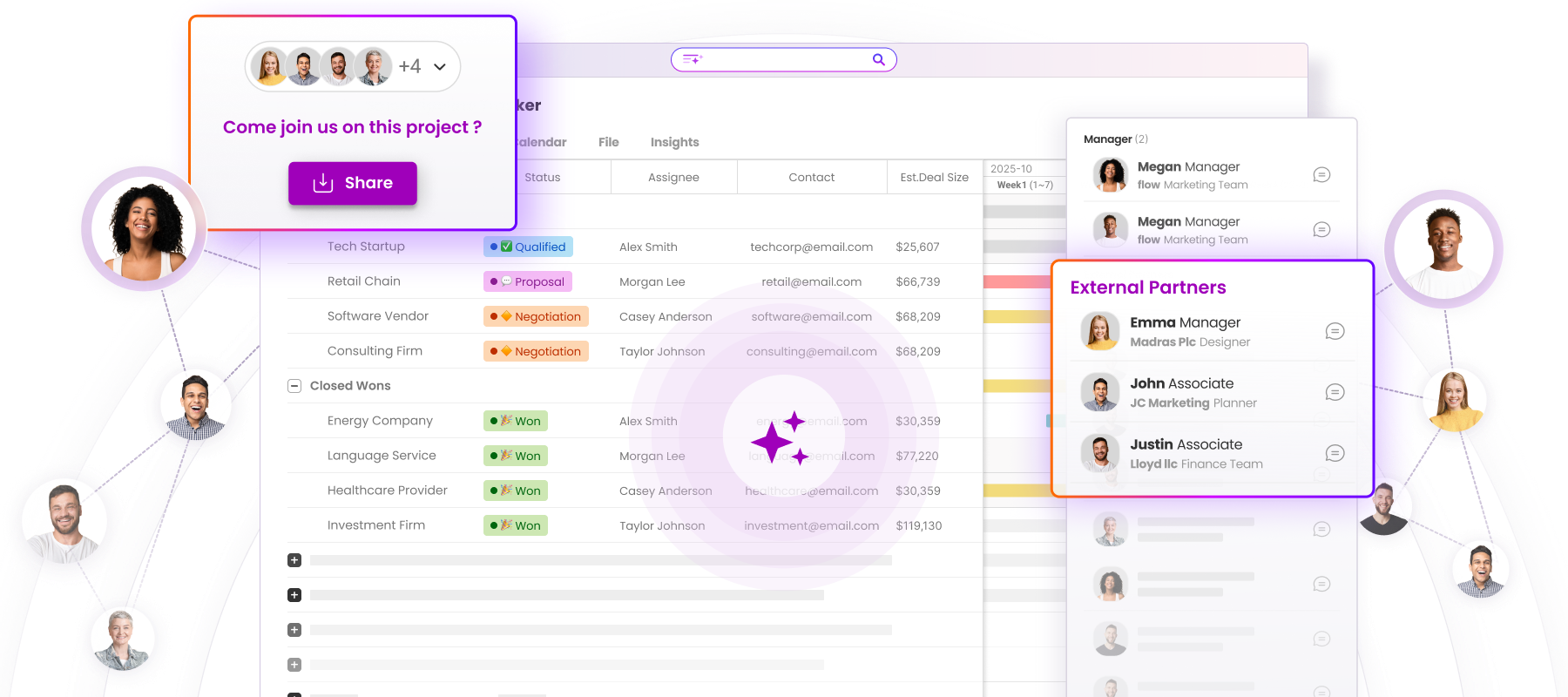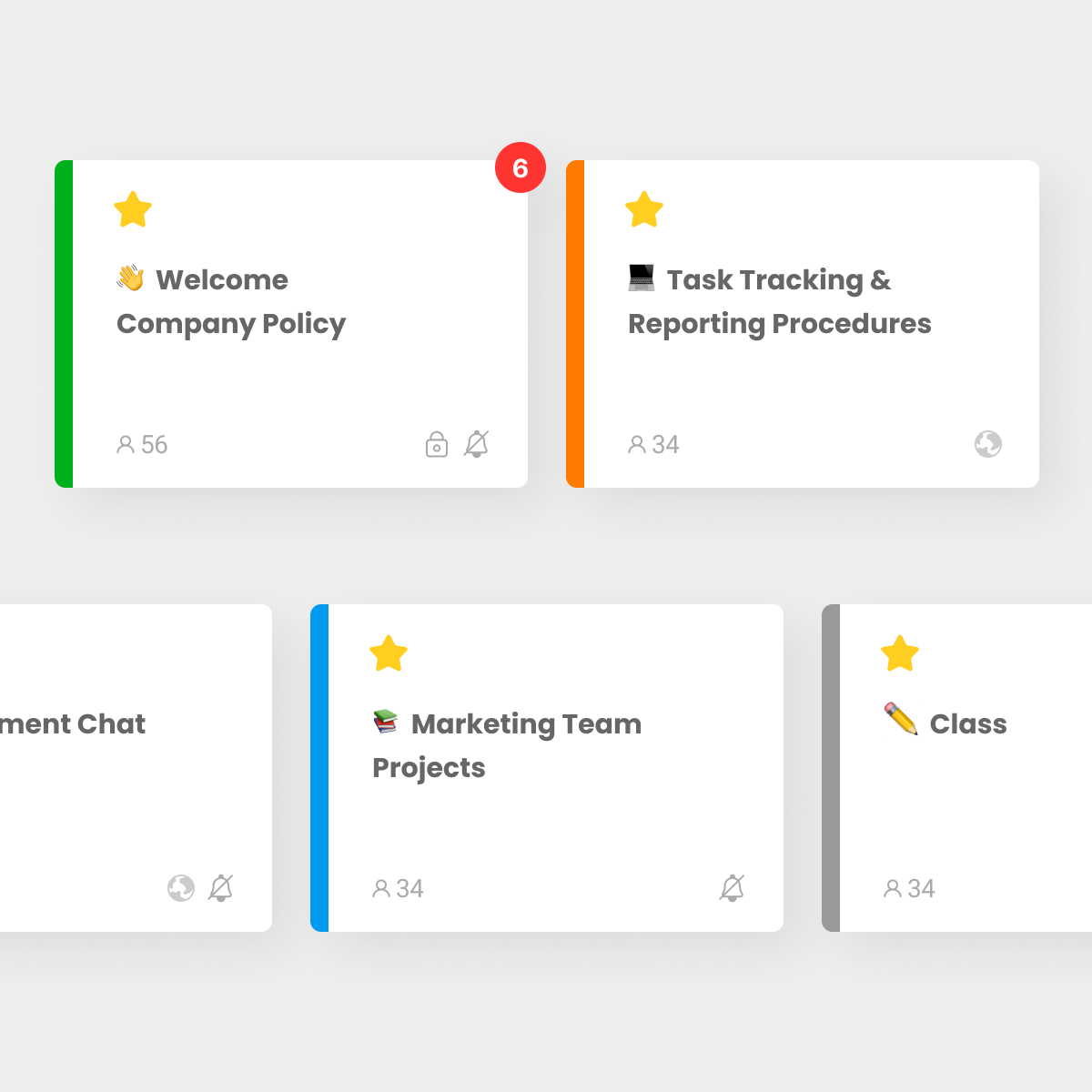It all begins with chaos. Sticky notes clutter your desk, your inbox is overflowing with emails, and deadlines that seemed distant are suddenly looming. We’ve all experienced this whirlwind. Balancing work, people, and timelines can quickly become overwhelming. Yet, some individuals manage projects seamlessly. How do they do it?
The answer lies in effective project management. It’s not about achieving perfection; it’s about being prepared.
In this guide, we’ll show you how to take charge from day one. You’ll discover straightforward steps, practical tools, and simple tips that make even the largest projects feel manageable. Whether you’re leading a team or just trying to keep track of your own tasks, this guide will provide clear insights without unnecessary fluff. Let’s dive into the essentials, starting with the basics.
Project Management Overview
Managing projects has become increasingly complex. With tighter deadlines, smaller teams, and higher expectations from stakeholders, relying solely on a to-do list is no longer sufficient. You need structure and clarity. Most importantly, you need to understand how effective project management works.
In essence, project management involves guiding a team to achieve a specific goal within a set deadline, budget, and scope. It includes planning, organizing, executing, and closing projects to maximize results while minimizing risks. Whether it’s a product launch, a marketing campaign, or software development, effective project management ensures that every step is intentional.
What is Good Project Management?
Good project management keeps your team on track, sets realistic goals, and maintains a flexible workflow. It transforms vague ideas into measurable actions, manages dependencies, and tracks progress against significant milestones.
Why Effective Project Management Matters
Ineffective project management can lead to costly consequences—missed deadlines, wasted resources, and unhappy teams. According to PMI, 44% of projects fail due to conflicting goals. That’s nearly half. By mastering effective project management, organizations can enhance productivity, foster collaboration, and achieve consistent results. Good project management turns plans into progress, guiding you toward success.
Key Steps to Managing a Project from Start to Finish
Successfully managing a project from start to finish requires more than just technology. It demands a strategic approach, adaptability, open-mindedness, and teamwork. Here are five essential steps to help you manage any project effectively.
1. Define the Project Scope and Objectives
Every project begins with clarity. Understand why the project exists. What problem does it address? Who benefits from it? What metrics will indicate its success?
Clearly defined goals prevent misalignment and keep you focused as the project progresses. Your scope outlines the total work required, including deliverables, timelines, and limitations. Establish boundaries to avoid overpromising and underdelivering.
Differentiate between goals and objectives. Goals represent the “what” (e.g., increasing website traffic), while objectives detail the “how” (e.g., publishing three new blog posts each week). These targets will guide your planning and serve as benchmarks.
2. Identify Stakeholders and Build the Right Team
Stakeholders include anyone affected by or involved in the project—clients, executives, end-users, and internal teams. Engage them early to gather feedback that can reveal risks, priorities, or necessary timeline adjustments.
Next, assemble a team tailored to the project’s needs. Don’t just pick the most talented individuals; consider complementary skills and working styles. Even the best plan will falter without the right support.
Smaller, cross-functional teams tend to be more agile and effective. Clearly define roles from the outset, including a project sponsor, subject matter experts, and a project manager.
3. Develop a Clear Project Plan
The third step is to create a project plan. This plan should address:
- Where are we headed? (What specific outcomes do we need to achieve?)
- When do we need to arrive? (What are our deadlines and key dates?)
- Who is responsible for each task? (Who will handle which parts of the project?)
- How will we track our progress? (What metrics will we use to measure success?)
A solid plan eliminates guesswork and keeps your project on track, even when challenges arise. It also makes onboarding new team members easier since everyone follows the same roadmap.
4. Set a Realistic Timeline and Budget
Unrealistic timelines are a common project pitfall. Break the project into manageable phases and estimate time requirements based on actual data whenever possible. Remember to include buffer time for delays or unexpected issues.
Budgeting should follow a similar approach. Be thorough in estimating costs for labor, software, tools, and contingencies. Align your spending with the most impactful deliverables, and be transparent with stakeholders about financial constraints from the beginning.
5. Select the Right Project Management Framework
Choosing the right project management framework is crucial. Several frameworks can help your team manage projects effectively. Here are a few key options:
- Waterfall: A sequential method ideal for well-defined projects.
- Agile: Focuses on flexibility and frequent feedback, suitable for dynamic environments like software development.
- Scrum: A type of Agile that uses sprints and daily stand-ups, best for quick, collaborative teams.
- Kanban: A visual task management system ideal for teams juggling multiple projects.
- V-Shaped: Incorporates testing at each phase, applicable in fields like product engineering and healthcare technology.
By following these steps and principles, you can navigate the complexities of project management with confidence and achieve your goals effectively.
Practical Tips for Effective Project Management
Improving project management hinges on intentional execution and adaptability. Even the most carefully crafted plans can falter if daily operations are mismanaged. The following strategies will help keep projects on track and ensure they conclude successfully, with teams aligned and clients satisfied.
Encourage Open and Frequent Communication
Ineffective communication is a leading cause of project failure. In fact, according to a PMI study, for every $1 billion spent on a project, $75 million is lost due to communication breakdowns. Prioritize open communication from the outset.
Hold regular status meetings, utilize real-time communication tools, and establish clear documentation protocols. Encourage team members to ask questions, provide updates, and voice concerns early to enhance communication.
Break Down Tasks and Assign Responsibility
Large projects can feel daunting without a clear management strategy. The key is to divide big goals into smaller, manageable steps and assign each step to a specific person responsible for its completion.
When individuals “own” a task, they are more likely to take responsibility for it, meet deadlines, and reduce confusion. Use a task management tool or a simple shared list to clarify responsibilities. When everyone knows their roles, the team collaborates more effectively.
Monitor Progress and Adapt as Needed
Effective project managers track progress, record key metrics, and ensure that work aligns with goals. Tools like dashboards, Gantt charts, and Kanban boards provide a clear overview of the project, making it easy to spot bottlenecks or overlooked dependencies.
Don’t wait until the end to make adjustments. Be proactive in modifying the project scope, reallocating resources, or adjusting timelines as necessary. Flexibility is crucial for successful project management.
Identify and Address Risks Early
Every project encounters risks—some predictable, others not. Early risk assessment is vital, as unidentified risks can derail budgets, timelines, and deliverables.
Leverage past project data, team insights, and SWOT analysis to identify potential issues ahead of time. Document each risk’s likelihood and impact, and develop contingency plans and response strategies in advance.
Engage Stakeholders Throughout the Process
One often-overlooked aspect of project management is keeping stakeholders engaged. They should never be caught off guard at any stage. From the kickoff meeting to weekly updates, keep them informed and involved.
Understand each stakeholder’s preferred communication style. Some may prefer detailed reports, while others might favor concise visual dashboards. Establish communication routines that cater to their preferences and ensure their feedback is integrated into decision-making.
Reflect and Learn After Project Completion
Learning doesn’t stop when the project ends. Conduct a retrospective or debriefing session to document successes and areas for improvement. This reflection will provide valuable insights for future projects.
Consider questions like:
- What were the main obstacles?
- Which tools were most effective?
- How well did we achieve our initial goals?
Record these lessons in a shared space for future reference. This practice ensures that your project management approach evolves with each experience, transforming challenges into strengths.
How to Manage Project Managers or a Project Team
When managing others rather than executing tasks yourself, mastering the art of managing project managers becomes essential. This involves leadership, alignment, and fostering a high-performance culture.
Establish Clear Expectations and KPIs
Start by defining what success looks like. Without key performance indicators (KPIs), teams may lack direction. Clearly outline deliverables, timelines, budgets, and productivity metrics so that every team member understands how their work will be evaluated.
Set guidelines for communication frequency, update methods, and escalation procedures. This structure allows your team to operate independently, reducing the need for constant oversight. When expectations are clear, accountability becomes a shared responsibility.
Cultivate a Culture of Accountability
Accountability begins with transparency. Team members should feel empowered and responsible for their contributions. Create routines where individuals report on their progress to each other, fostering mutual trust and maintaining focus.
Encourage team members to share updates regularly and discuss any obstacles openly. If someone misses a deadline, provide a supportive environment where they can seek help without fear of blame.
Provide Support Without Micromanaging
Being available doesn’t mean being controlling. One of the most challenging aspects of project management is allowing team members the space to perform while offering guidance when needed.
Check in on major milestones rather than every task. Instead of providing solutions, ask questions. This approach shows confidence in their abilities while making it clear that you are there to assist if necessary.
Utilize Tools That Promote Transparency
Choose tools that enhance transparency regarding project status, task assignments, and critical timelines. The right tools eliminate guesswork, allowing everyone to see what’s next, what’s overdue, and who is responsible.
Look for tools that offer real-time feedback, integrate with your team’s preferred applications, and visually track work progress. These features minimize the need for repeated check-ins and empower each team member to perform at their best.
Ultimately, effective project management at the team level is about enabling success. With the right systems and mindset, your team can become proactive, independent, and aligned.
Recommended Tools for Effective Project Management
Even seasoned project managers need the right tools to stay organized, keep stakeholders informed, and streamline workflows. Navigating complex projects without supportive software in today’s fast-paced environment is like sailing a ship without a map. The right platform not only saves time but also reduces confusion, delays, and costly mistakes.
Morningmate – The Ultimate All-in-One Collaboration Platform for Teams

For effective project management, Morningmate excels with its blend of simplicity, power, and flexibility. Designed for teams of all sizes, Morningmate centralizes your workflow, ensuring that projects, tasks, deadlines, and team communications are all in one place.
Its intuitive design allows you to quickly create tasks, assign responsibilities, set priorities, and add due dates or subtasks. The clean interface supports various views, including calendars, list view, and Gantt chart, making it easy to visualize progress and dependencies.

You can invite external partners or clients into shared workspaces with specific permissions, facilitating seamless cross-team collaboration. Additionally, powerful filtering options help you prioritize tasks by urgency or category, keeping your focus where it matters most.
Morningmate also enhances team communication. Real-time chat, in-task messaging, and notifications eliminate lost updates and lengthy email threads, ensuring everything stays connected to the work at hand.
With workflow templates, centralized content storage, role-based permissions, and new AI-driven tools, Morningmate simplifies planning, monitoring, and task completion like never before. Whether managing development projects, launching campaigns, or overseeing remote teams, it is an efficient and user-friendly solution for modern work.
Common Mistakes to Avoid in Project Management
Many people make mistakes in project management. Below, we highlight some common pitfalls to help you steer clear of them.
Ignoring Scope Creep
Scope creep happens when a project gradually expands beyond its original goals. This issue often arises from inadequate planning or a lack of early engagement with stakeholders. To prevent scope creep, clearly document your objectives, manage stakeholder expectations, and implement a change management process for any mid-project adjustments.
Poor Communication Channels
Effective communication is crucial for project success. A missed update or unclear message can derail timelines, waste resources, and create friction among team members. Utilize real-time communication tools to keep everyone aligned and schedule regular check-ins. Consistent and clear communication ensures that everyone is informed and helps address potential issues before they escalate.
Inadequate Planning or Resource Allocation
Jumping into a project without a solid plan can leave teams unprepared. Many projects fail due to unrealistic timelines or insufficient resources from the start. Successful project management begins with accurate scheduling, well-defined budgets, and clear responsibilities. Avoid overestimating the time or skills required for tasks. Steering clear of these common mistakes is essential for delivering projects on time and within budget.
Final Advice for New Project Managers
Stepping into a project management role can be daunting. You’ll face deadlines, manage teams, and balance expectations. Remember, no one has all the answers on day one. The difference between a good manager and a great one lies in the willingness to learn, adapt, and lead with purpose.
Stay Adaptable and Keep Learning
Every project is unique, and challenges are inevitable. Being flexible and open to change will help you navigate obstacles without losing momentum. Great project managers view each project as an opportunity to learn.
Don’t Overcomplicate the Process
Keep it simple. Focus on clear goals, prompt communication, and well-defined roles. Complex tools and workflows don’t guarantee success—simplicity does. While it may sound cliché, this is one of the best pieces of advice in project management.
Celebrate Milestones and Small Wins
Every step forward counts. Recognizing small victories helps maintain team morale and reinforces the sense of progress. A positive atmosphere starts with you.
Ready to Manage Projects More Effectively? Try Morningmate
If you’re seeking a more efficient and innovative way to manage projects and support your team, MorningMate is here to help. With features like easy work item creation, Gantt chart views, workflow templates, and built-in AI, it brings clarity and control to your project management process.
You can manage timelines, delegate tasks, communicate in real time, and collaborate with both internal teams and external partners—all in one platform. There’s no steep learning curve, just practical tools that allow you to work in your preferred style. For new managers or fast-paced teams, MorningMate helps you stay focused, adapt quickly, and achieve more—without the chaos. Sign up for MorningMate now to start your free 14-day trial and discover how easy project management can be.




